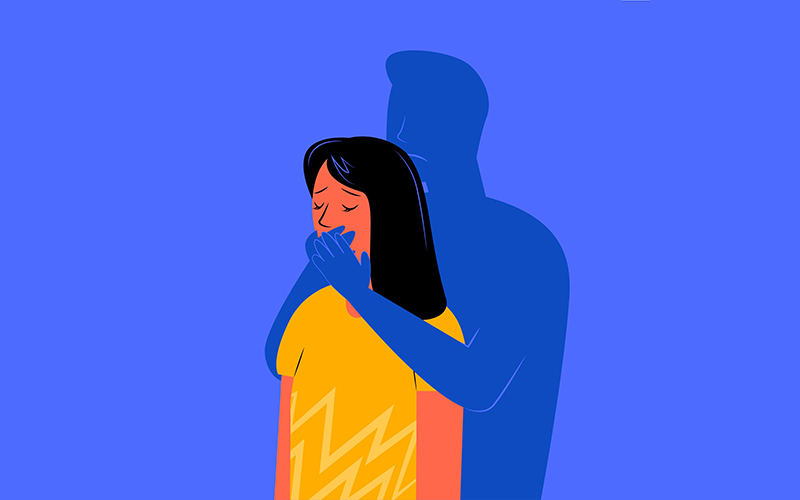Guardians of Innocence: Impact of Sexual Abuse on Children

Children are a vulnerable group because of their age and dependency. It is crucial to prevent any abuse as these leave marks on physical and mental health scars throughout their lives. To prevent abuse and protect the children from it, let us first understand what abuse is ?
The legal definition of abuse can vary depending on the jurisdiction, as laws and definitions may differ across countries, states, or regions. Under POSCO, any act withsexual intent to any child below the age of 18 years is considered sexual assault. In a general sense, abuse is often considered to be the infliction of harm, mistreatment, or the violation of someone's rights. It can manifest in various forms, including physical, emotional, psychological, sexual, or financial abuse. Legal systems aim to protect individuals from abuse and may have specific statutes and regulations that address different types of abusive behaviors.
Here are some broad categories of abuse:
- Physical Abuse: Any intentional use of force causing injury or bodily harm to another person.
- Emotional/Psychological Abuse: Inflicting mental or emotional anguish through threats, intimidation, manipulation, or other non-physical means.
- Sexual Abuse: Non-consensual sexual contact or activities, including rape, sexual assault, and other forms of unwanted sexual behavior.
- Financial Abuse: Exploiting someone financially, such as stealing money, controlling finances without consent, or coercing financial decisions.
- Neglect: Failing to provide necessary care, support, or protection, particularly when responsible for the well-being of another person.
In this article we talk about one the most inhuman forms of abuse–Sexual Abuse of children.
Sexual abuse refers to any unwanted or non-consensual sexual activity that involves coercion, force, manipulation, or exploitation. It is a violation of a person's rights and boundaries in a sexual context. The legal definitions and classifications of sexual abuse can encompass a wide range of behaviors, and they may include acts such as rape, sexual assault, child molestation, incest, sexual harassment, and other forms of non-consensual sexual contact.
Sexual abuse can have profound and lasting effects on children, impacting them emotionally, psychologically, and socially. The consequences of sexual abuse can vary based on factors such as the severity of the abuse, the relationship between the child and the abuser, the duration of the abuse, and the level of support the child receives. Here are some common effects:
Emotional Impact
- Shame and Guilt: Children may feel a deep sense of shame and guilt, often wrongly blaming themselves for the abuse.
- Fear and Anxiety: Fear and anxiety can result from the traumatic experience and the ongoing threat of abuse.
- Depression: Many survivors of sexual abuse may experience depression, often linked to feelings of powerlessness and worthlessness.
- Anger and Aggression: Children may exhibit anger, aggression, or other behavioral issues as a way of coping with their emotions.
Psychological Impact
- Post-Traumatic Stress Disorder (PTSD): Sexual abuse can lead to symptoms associated with PTSD, such as flashbacks, nightmares, and hypervigilance.
- Dissociation: Some children may develop dissociative symptoms, detaching from their own emotions or the reality of the abuse as a way to cope.
- Self-Esteem Issues: Sexual abuse can contribute to low self-esteem and a negative self-image.
Social Impact
- Difficulty Trusting Others: Survivors may struggle with trust issues, finding it challenging to build and maintain healthy relationships.
- Social Isolation: Some children may withdraw socially, avoiding peers and activities they once enjoyed.
- Sexual Behavior Issues: Inappropriate sexual behaviors, promiscuity, or avoidance of sexual intimacy may arise as a result of the abuse.
Cognitive Impact
- Academic and Cognitive Challenges: The emotional toll of sexual abuse may interfere with a child's ability to concentrate, learn, and perform academically.
Physical Impact:
- Physical Health Issues: Chronic physical health problems, such as headaches, stomachaches, or other psychosomatic symptoms, may be linked to the stress of the abuse.
It is important to note that each child may respond differently to sexual abuse, and the impact can be long-lasting. Early intervention, therapy, and support from caring adults can play crucial roles in helping children recover and develop resilience in the face of such trauma. Professional help, such as counseling and therapy, is often essential for survivors to navigate the healing process.







